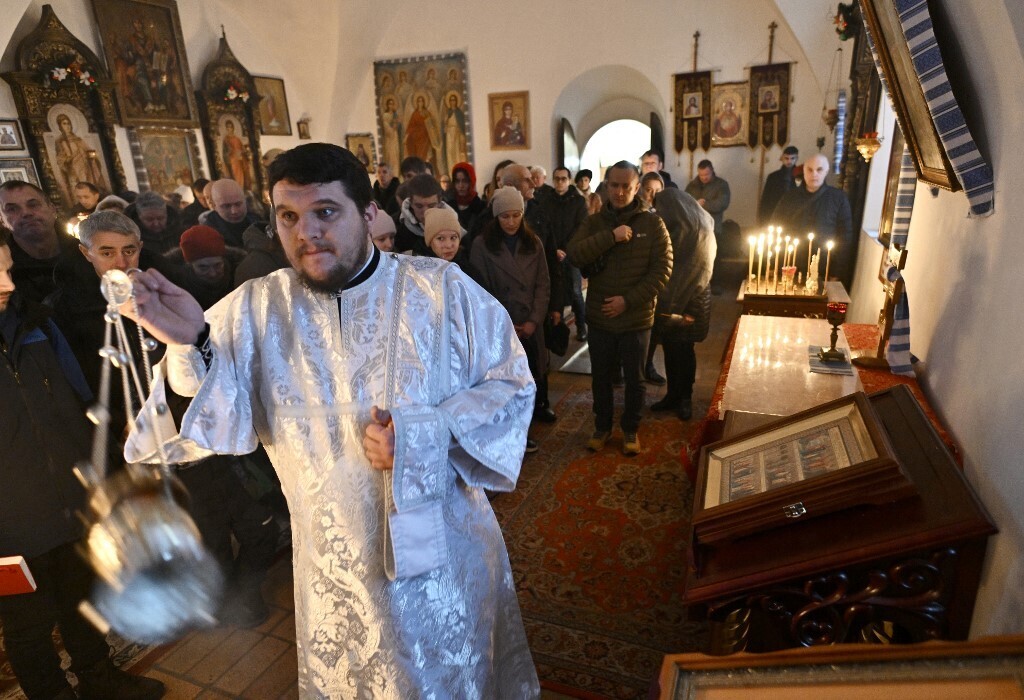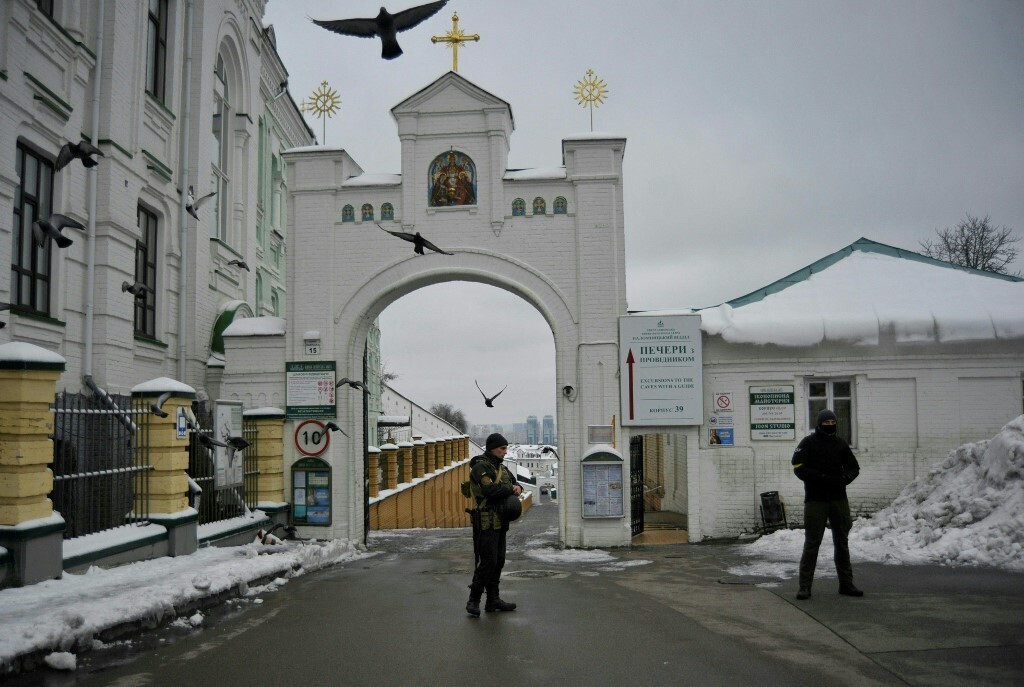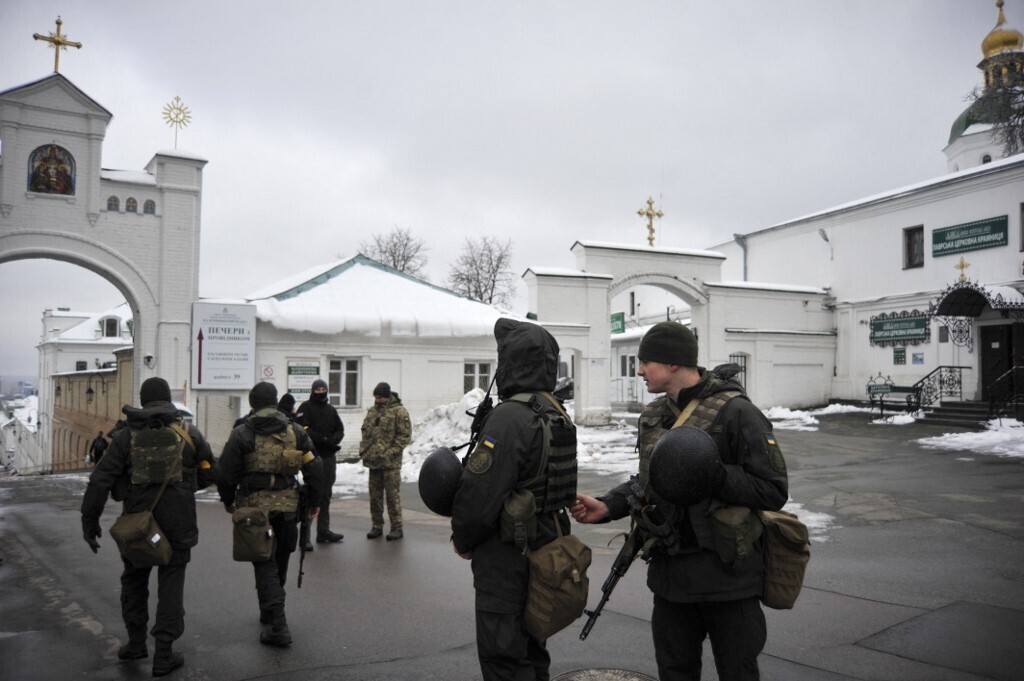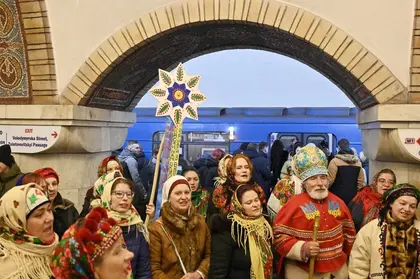Christmas is being celebrated again by many in Ukraine on 6-7 January although most of the Christian world did so on Dec. 25. Why is this the case? What does it have to do with current political issues exacerbated by Russia’s war on Ukraine? And more importantly, what makes this Christmas period different, memorable and inspiring?
First, let's start with the basics. Many Western media mechanically, without delving into details or checking facts, glibly except the Russian narrative that the celebrations in early January represent the “Orthodox” Christmas. This is a misnomer that needs to be dispensed with once and for all.
JOIN US ON TELEGRAM
Follow our coverage of the war on the @Kyivpost_official.
Yes, some countries, including Russia, and for the moment, most Christians in Ukraine, including the country’s sizeable Greek Catholic Church, do observe Christmas on these dates. Along with Belarus, Moldova, Georgia, Armenia, Serbia, Montenegro, Macedonia, and Ethiopia. But in other traditionally Orthodox Christian countries, their churches, including the those of Greece, Bulgaria, Romania and Cyprus, switched in the 20th century to observing Christmas on Dec. 25.

In Ukraine, Russia’s attempt from late Feb. 2022 to destroy Ukraine as a state, and grab its land, culture and patrimony, has inevitably intensified the internal debate about whether to remain with the “Old” calendar that Moscow upholds, or to join the majority of the Christian world, and much of the large Ukrainian diaspora, and celebrate Christmas on Dec. 24-24.

No Compromising With the Kremlin
Why the discrepancy in the dates? It stems back to the ancient Romans and their attempts to measure the passing of time in an accurate way. Over 2,000 years ago the Roman leader Julius Caesar reformed the calendar to remove perceived deficiencies. Much later, in 1582, Pope Gregory XIII introduced what came to be known as the “Gregorian” or “New” calendar. It entailed a readjustment of several days to rectify further mathematical mistakes that had been discovered and he replaced the “Julian” calendar.
Not all states accepted the new calendar, some viewing it as Vatican plot, or, as in Britain, for example, as depriving people of 11 or so days of their lives. Orthodox churches, invoking tradition and disdain for Rome, adhered to the “Old” or “Julian” calendar and continued to celebrate Christmas on 6-7 January.
Now, a few words about Ukrainian Christianity. Kyivan Rus took its Christian faith from Byzantium at the end of the tenth century, that is, around half a century before the split into Roman Catholics and Orthodox Christians occurred.
While remaining open to ties with Rome, the Orthodox Christians of Ukraine acknowledged the Patriarch of Constantinople as their spiritual head. In the late sixteenth century, after Constantinople had been seized by the Turks, some Ukrainian Orthodox accepted the jurisdiction of the Pope on condition they retain their Orthodox rite, complete with married clergy. And thus, the Ukrainian Greek Catholic Church – “Uniates” – was born. In Western Ukraine in the 19th and 20th centuries, the Greek Catholic Church played an important role in in galvanizing the Ukrainian national movement.

Meanwhile, towards the end of the 17th century, the Muscovites consolidated their control over eastern Ukraine and Kyiv, and placed the church there under the control of the Moscow Patriarch. Subsequently, in the harsh political condition under Russian and then Soviet rule, the Ukrainian Orthodox Church bravely sought to revive its distinct heritage and identity linked to Constantinople but was persecuted and suppressed. When the Soviet Union took control over Western Ukraine at the end of the Scoond World War, it also banned the Ukrainian Catholic Church.
With the collapse off the Soviet Union, and its means of control over non-Russian areas through the Communist Party and the security forces, the Russian Orthodox Church became one of the principal means of fostering Russian influence in its immediate neighborhood over which it had lost its hegemony.
In the years following the achievement of independence, Russian fifth columnists masquerading as home-grown “Ukrainian” clerics and hierarchs remained very active in a country that Moscow was intent on dividing and weakening along regional, linguistic and religious lines. Moreover, they kept control of key symbolic religious centers in Ukraine, most notably the KyIv Cave Monastery (Pecherska Lavra) with its lucrative income from tourism, and the Pochaiiv Lvara in western Ukraine.

In 2018, the then president of Ukraine, Petro Poroshenko, desperate to win re-election, appealed to Ukrainian patriotism and was able to pull off a major coup in the religious sphere. He managed to persuade the Patriarch of Constantinople, Bartholomew, to recognize the Orthodox Church of Ukraine (OCU) and grant it autocephaly (self-governorship). The following January it was welcomed back to its “Mother Church.” Consequently, the OCU cut its ties irrevocably with the Moscow Patriarchate.
Despite this major setback, the pro-Russian Orthodox church – the “Orthodox Church of Ukraine-Moscow Patriarchate (OCU-MP) - nevertheless remained a powerful force in Ukraine, as did its likeminded allies among the country’s oligarchs and politicians and the media they controlled. The country’s new president Volodymyr Zelensky moved to curb their influence in the name of national security.
Russia’s brutal attack on Ukraine on Feb. 24, and the wholehearted support it received from Moscow Patriarch Kirill, a staunch ally of Putin, inevitably resulted in the intensification of defensive internal counter-measures. Although the hierarchy of the OCU-MP sought to distance itself from Kirill’s position, no one was fooled and the move was seen as purely a tactical ploy.
Ukrainian security forces launched a series of searches among the pro-Russian hierarchs and clerics and reportedly found abundant incriminatory evidence. In early December, President Zelensky announced that the Ukrainian state would prevent “religious organizations affiliated with centers of influence in the Russian Federation” from operating and sanctions were imposed on a number of clergy.
Since then, the government has not renewed the pro-Russian church’s lease on a part of the Kyiv Pecherska Lavra which expired on Jan. 1. Moreover, in an important symbolic gesture, it has enabled the OCU to conduct a historic religious celebration for the first time in this sacred complex on Jan. 7.
In another development which has infuriated Moscow and its religious loyalists in Ukraine, last month for the first time the OCU allowed its 7,000 congregations to choose for themselves whether to celebrate Christmas on Dec. 25 or Jan. 7.
Archbishop Yevstratiy Zoria of the OCU told Politico “there had been a groundswell for a change since 2017, when Dec. 25 became a public holiday in Ukraine. Many of the church’s adherents had lobbied for a move away from the Julian calendar, which is observed by the Russian Orthodox Church.”
According to Politico, “More than 1,600 parishes have defected from the Ukrainian Orthodox Church since it was recognized by the Patriarchate of Constantinople — about 1,000 of them since Russia’s invasion of Ukraine.”
So yes indeed, this Christmas in Ukraine marks a milestone. This religious celebration and festive season are taking place against the background of a horrible war launched against Ukraine by Russia which has precipitated the further emancipation of Ukrainian Orthodoxy from Moscow and the strengthening of the nation’s political and cultural identity. And Russia's aggressive forces are being repelled not only on the battlfield, but in the ideolodical and psuedo religious spheres, too.
You can also highlight the text and press Ctrl + Enter





![[VIDEOS] North Korean Troops in Russia Confirmed](https://static.kyivpost.com/storage/2024/10/19/a6f6a4c5d74d066019e5812a20c6514f.png?w=420&q=75&f=webp)
